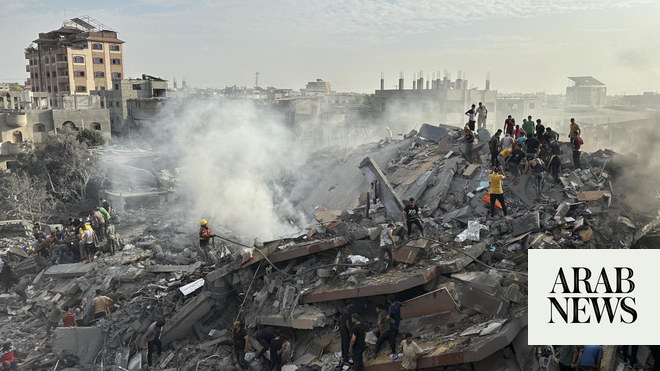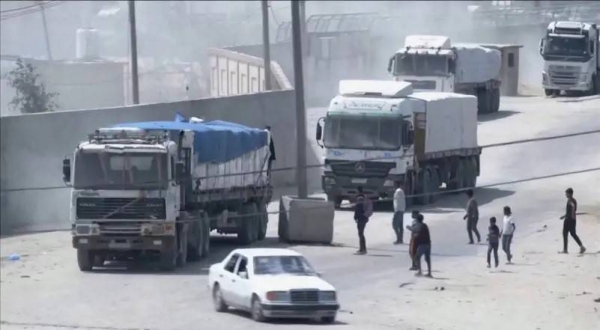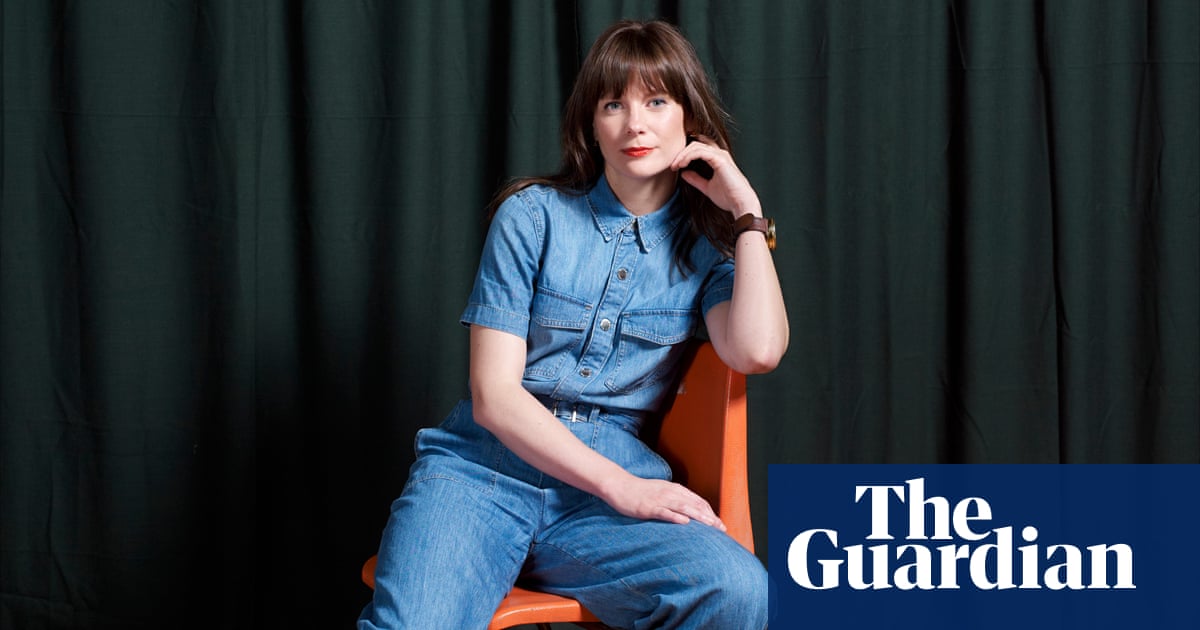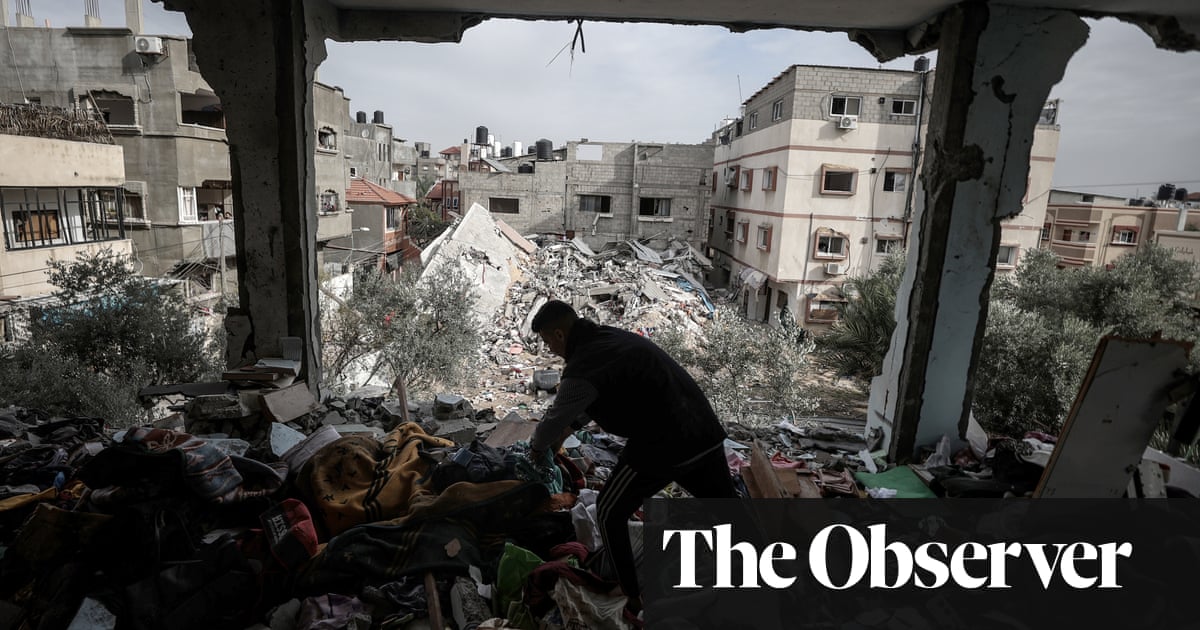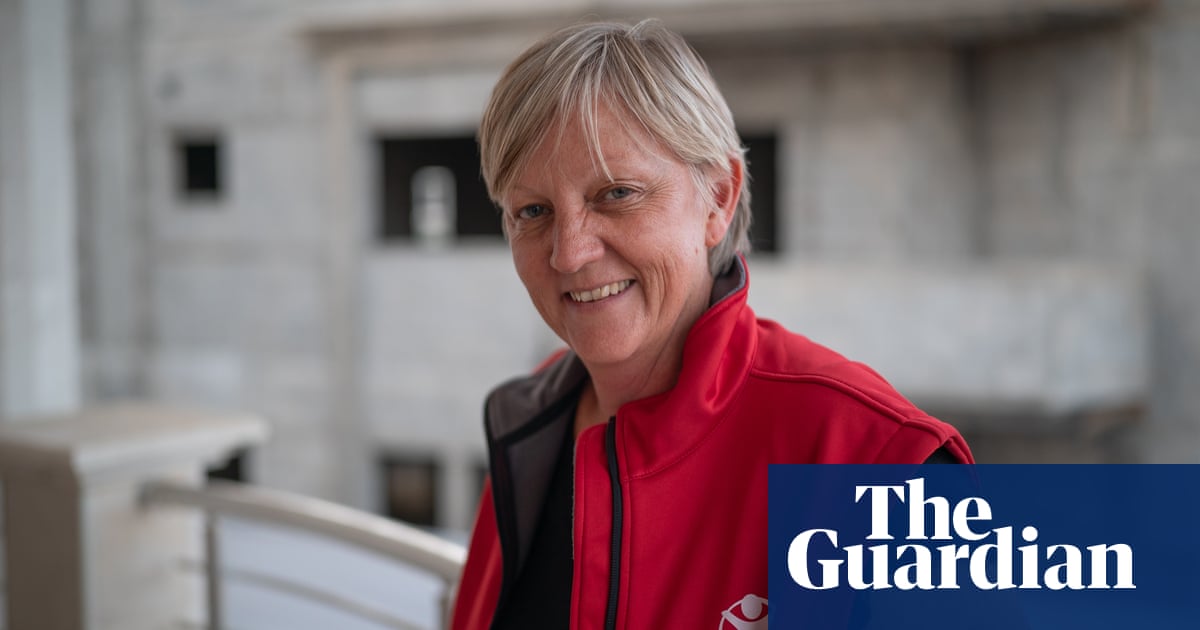
We operate south of Wadi Gaza [the stream that bisects the strip], mainly in Rafah and Deir al-Balah as Khan Younis is a bit insecure at the moment. The north is too dangerous at the moment, although we’re working with the World Food Programme to try to get supplies up there.
We live in two apartment blocks, the international staff along with the national staff and their families, and we have an office next door. We bring in our food when we cross into Gaza, mostly tinned and dried, but sometimes we buy fresh food from the market. We’re getting a machine connected that will desalinate and purify the water.
Every time we travel [within Gaza], we tell the Israeli military. Our information goes to the UN in Jerusalem and they send it to Cogat and the Gaza CLA [two Israeli government bodies] who coordinate with the Israeli military. We do this for every single movement, and we don’t set off until we have confirmation that all the information has been logged.
Our vehicles are clearly marked with Save the Children logos on the roof, sides and bonnet, and sometimes we have little flags attached to the vehicles too. We don’t wear flak jackets and helmets because the Israelis don’t allow us to bring body armour into Gaza through the Rafah crossing [with Egypt]. Very few aid agency staff have body protection.
World Central Kitchen (WCK) has a different way of coordinating its movements with the Israeli military. They’ve developed a good system of direct contact. They’re very well known to the Israelis. They constantly update their movements. That’s why we’re all absolutely shocked at the airstrikes – the fact that it was WCK. It has shaken confidence in the system. I feel quite nervous now, I’ll be honest.
We all expect an increase in international staff who ask to leave. If people want out, that’s their right. If they want to go, it’s my job to get them out.
The day of the airstrikes on the WCK convoy, I sent messages to my family to tell them they were going to hear about aid workers being killed but I was OK. All of us are constantly aware that our families are worried. You think, is it OK for me to put them through this? It’s really tough for families.
I can hear shelling most of the time, and sometimes naval gunfire. But it’s the airstrikes that are really scary. When they’re close, you get windows blown in and you feel shockwaves.
The worst was when Israeli forces rescued two hostages from a building in Rafah [in February]. They created “distractions” which killed a lot of people. We could hear them coming closer and closer, windows were blowing in. I ended up sheltering in a corridor with others, thinking this is not to be taken lightly.
There is also the sound of drones all the time – a buzzing, like multiple lawnmowers going above your head all night. You just can’t get used to it.
I’ve worked in a lot of conflict zones and dangerous places, but this is one of the worst. It’s partly straight numbers – half of humanity is living in the streets. There’s no space to move, people are waiting in long lines everywhere, the rubbish is piled up. It’s very difficult to find the physical space to offer aid.
But everything is difficult – getting trucks through the border, coming up with new ways of building latrines without the right materials, getting cash or food or medicine or a phone signal. It’s a constant battle.
As told to Harriet Sherwood.
Karyn Beattie is team leader for Save the Children’s response in Gaza. She is from South Africa and has been based in Rafah since the end of January





